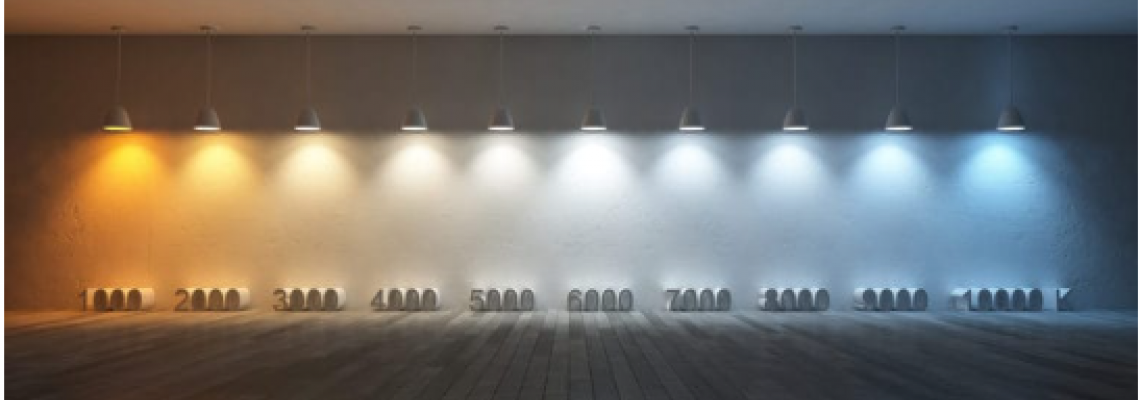
In today’s horticulture, lighting plays a critical role not just in keeping plants healthy but in driving growth, boosting yields, and maintaining efficiency. As energy costs rise and sustainability becomes a priority, growers are seeking advanced solutions that combine performance with cost-effectiveness.
One standout option is the use of DLC-listed, high-efficacy LED fixtures. The DesignLights Consortium (DLC) certification ensures that lighting products meet rigorous standards for energy efficiency, quality, and reliability. Meanwhile, “high-efficacy” means the fixture produces more light per watt, reducing energy consumption without compromising output.
For growers, this combination offers multiple advantages: lower operational costs, potential eligibility for energy rebates, improved crop performance, and a reduced environmental footprint. With LEDs already known for their tunable spectrum and long lifespan, choosing DLC-listed, high-efficacy models ensures you’re investing in technology that pays off both short- and long-term.
Whether you run a small indoor garden or a large commercial greenhouse, upgrading to these fixtures can be a strategic move toward greater profitability and sustainability. In short, DLC-listed, high-efficacy LED lighting isn’t just a purchase; it’s a smart investment in the future of modern agriculture.
What Does “DLC-Listed” Mean?
DLC stands for DesignLights Consortium, an independent organization that sets high standards for energy efficiency and quality in commercial lighting products.
When a fixture is DLC-listed, it means it has been tested and certified to meet strict requirements for:
Energy efficiency (lumens per watt)
Performance consistency
Longevity and durability
Manufacturer transparency
For horticulture, DLC Premium listings are especially valuable because they often qualify growers for rebates or incentives from utility companies, lowering the upfront investment cost.
What Is “High-Efficacy” in LED Fixtures?
Efficacy measures how effectively a fixture converts electrical energy into usable light, expressed in micromoles per joule (μmol/J) for horticultural LEDs.
A high-efficacy LED grow light delivers more usable photons to plants while consuming less electricity, meaning:
Lower operating costs
Reduced heat output
Improved light uniformity across the grow space
In short, high-efficacy fixtures allow you to grow more with less.
The Core Benefits of DLC-Listed, High-Efficacy LED Fixtures
1. Significant Energy Savings
Switching to DLC-listed, high-efficacy LEDs can reduce energy consumption by 30–50% compared to traditional HPS or fluorescent grow lights. For large-scale operations, this can translate to thousands of dollars in annual savings and even more when paired with utility rebates.
2. Consistent, Quality Light Output
DLC certification ensures that fixtures perform as promised in real-world conditions. High-efficacy LEDs deliver stable light output over their lifespan, so your plants get consistent PPFD (Photosynthetic Photon Flux Density) for predictable growth results.
3. Reduced Heat Load
LEDs with high efficacy waste less energy as heat, lowering the temperature in your grow space. This means:
Less stress on plants
Reduced cooling costs
More flexibility in fixture placement for vertical farms and greenhouses
4. Long Lifespan & Lower Maintenance
DLC-listed LEDs are designed for longevity often rated for 50,000+ hours of use. Combined with quality manufacturing standards, this results in fewer fixture replacements, lower labor costs, and minimal disruption to growing cycles.
5. Better ROI Through Rebates and Incentives
Many utility providers offer rebate programs for DLC-listed products, making the switch to high-efficacy LEDs even more affordable. Depending on your location, rebates can cover up to 50% of the fixture cost, significantly improving return on investment.
6. Sustainability and Environmental Compliance
Using DLC-listed LEDs supports sustainable agriculture by:
Reducing greenhouse gas emissions
Lowering overall energy demand
Eliminating hazardous materials like mercury (common in older lighting tech)
For farms seeking LEED certification or eco-label recognition, this can be a major advantage.
7. Optimized Light Spectrum for Plants
High-efficacy horticulture LEDs can be designed with crop-specific light recipes, targeting the exact wavelengths plants need for photosynthesis, flowering, and fruiting. This ensures maximum light use efficiency and higher yields.
DLC-Listed vs. Non-Certified Fixtures
While non-certified LED grow lights may be cheaper upfront, they often come with risks:
Lower efficiency, leading to higher energy costs over time
Inconsistent light quality, which can affect plant growth
Shorter lifespan and higher maintenance needs
No access to rebates or incentives
In contrast, DLC-listed fixtures are a proven investment delivering performance, reliability, and financial benefits.
Real-World Example: Savings in Action
A commercial cannabis grower operating a 10,000 sq. ft. facility switched from 1000W HPS fixtures to DLC-listed, high-efficacy LEDs rated at 2.9 μmol/J.
Results:
Energy usage dropped by 42%
Cooling costs decreased by 30%
Annual savings exceeded $80,000 when factoring in rebates and reduced operating expenses
The grower also reported better quality yields due to more uniform light distribution and optimized spectrum.
How to Choose the Right DLC-Listed, High-Efficacy Fixture
When evaluating options, consider:
DLC Listing – Verify the fixture on the DLC Qualified Products List (QPL).
Efficacy Rating – Aim for 2.5 μmol/J or higher for top-tier efficiency.
PPFD Output – Match the fixture’s light intensity to your crop and growth stage needs.
Spectrum Options – Look for tunable or crop-specific light recipes.
Warranty & Support – Choose reputable brands with solid after-sales service.
The Future of Grow Lighting Is DLC + High Efficacy.
With energy prices rising and sustainability becoming a top priority, DLC-listed, high-efficacy LED fixtures are quickly becoming the gold standard in horticulture lighting. They provide growers with:
Measurable cost savings
Predictable plant performance
Environmental benefits that support sustainable agriculture
Whether you’re running a small indoor garden or a massive greenhouse operation, investing in quality DLC-listed LEDs is a smart, future-proof choice.
Conclusion
Lighting is one of the biggest operational expenses for growers, but it’s also one of the easiest areas to optimize. By choosing DLC-listed, high-efficacy LED fixtures, you’re not just upgrading your lights; you’re investing in a more profitable, sustainable, and resilient growing operation.

24 Comment(s)
1
1
1
1
1
1
1
1
1
1
1
1
1
1
1
1
1
1
1
1
1
1
1
1
1
1
1
1
1
1
1
1
1
Leave a Comment